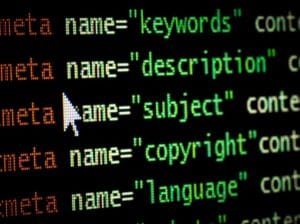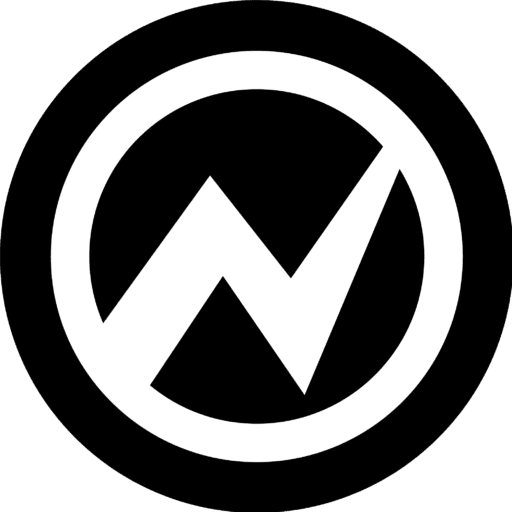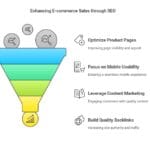
In today’s digital age, understanding how search engines work is essential for anyone seeking to create a robust online presence. Whether you’re a business owner, content creator, or just curious about the web, learning about crawling and indexing—two fundamental processes—is a great place to start.
What Are Search Engines?
Search engines are sophisticated systems designed to help users find information on the internet. They navigate the vast web by discovering, organizing, and ranking billions of web pages to provide the most relevant results for any query. Popular search engines like Google, Bing, and Yahoo follow specific processes, including crawling, indexing, and ranking.

What Is Crawling?
Crawling is the process by which search engines discover new and updated content on the web. To do this, search engines use automated programs called “web crawlers” or “spiders” that systematically browse the web, following links from one page to another. Google’s web crawler, for instance, is known as Googlebot.
How Crawling Works
- Starting Point: Crawlers begin their journey with a list of URLs called “seed URLs.” These are often pages from previously indexed websites.
- Following Links: From the seed URLs, crawlers follow hyperlinks to discover additional pages. Every link acts as a pathway to new content.
- Fetching Content: As the crawler visits a page, it fetches the HTML code and other associated files (e.g., images, CSS, JavaScript) for analysis.
- Storing Data: The collected information is stored in the search engine’s database for further processing.
Factors Influencing Crawling
- Website Structure: A well-organized site with clear navigation makes it easier for crawlers to discover content.
- Sitemaps: XML sitemaps provide a roadmap of your website’s URLs, helping crawlers prioritize important pages.
- Robots.txt File: This file tells crawlers which parts of your site they can or cannot access.
- Crawl Budget: This refers to the number of pages a crawler is willing to crawl on your website within a given timeframe. Sites with better authority and fewer errors often receive a higher crawl budget.
What Is Indexing?
Indexing is the process of organizing and storing the information collected during crawling. Once a page is crawled, the search engine analyzes its content and adds it to a database called the index. This index acts as the search engine’s library, containing all the information it has gathered about web pages.

How Indexing Works
- Content Analysis: The search engine examines the page’s content, including text, images, metadata, and videos, to understand its context and purpose.
- Keyword Mapping: It identifies key phrases and terms that best represent the page’s content.
- Storing Information: The processed data is stored in the search engine’s index, making it retrievable when a relevant query is made.
- Filtering Duplicate Content: If similar pages exist, the search engine may prioritize one version and deindex duplicates.
Factors Influencing Indexing
- Unique Content: Original, high-quality content is more likely to be indexed.
- Meta Tags: Tags like title, description, and canonical tags help search engines understand and prioritize your content.
- Mobile Friendliness: Pages optimized for mobile devices are more likely to be indexed, given the mobile-first indexing approach.
- Page Load Speed: Faster pages provide a better user experience and are often favored in indexing.
The Relationship Between Crawling and Indexing
Crawling and indexing are interconnected. Crawling is the discovery phase, where the search engine finds new pages. Indexing is the storage and organization phase, ensuring discovered pages can appear in search results. If a page isn’t crawled, it can’t be indexed—and if it’s not indexed, it won’t appear in search results.
Common Issues with Crawling and Indexing
Crawling Issues
- Broken Links: Dead links can disrupt a crawler’s journey through your site.
- Blocked URLs: Pages disallowed in the robots.txt file won’t be crawled.
- Dynamic URLs: URLs with complex parameters may confuse crawlers, leading to skipped pages.
Indexing Issues
- Thin Content: Pages with minimal or irrelevant content might not be indexed.
- Duplicate Content: Repeated content across pages can lead to some being excluded from the index.
- Noindex Tags: Pages with this meta tag are intentionally excluded from indexing.
How to Optimize for Crawling and Indexing
Improve Crawlability
- Use an XML Sitemap: Submit a sitemap to Google Search Console to guide crawlers.
- Fix Broken Links: Regularly audit your site for 404 errors and correct them.
- Optimize Internal Linking: Ensure links between your pages are logical and efficient.
- Update Robots.txt: Allow access to essential pages while blocking irrelevant ones.
Enhance Indexability
- Create High-Quality Content: Focus on providing valuable and unique information.
- Use Structured Data: Implement schema markup to help search engines understand your content better.
- Leverage Canonical Tags: Avoid duplicate content issues by pointing to the preferred version of a page.
- Ensure Mobile Optimization: Design your site to perform well on all devices.
Tools to Help with Crawling and Indexing
- Google Search Console: Monitor your site’s crawl status and submit sitemaps.
- Screaming Frog: Analyze your site’s structure and identify crawling issues.
- Ahrefs Site Audit: Check for technical SEO problems affecting crawlability and indexability.
- Semrush: Perform comprehensive audits to optimize your site.
Why Crawling and Indexing Matter
Effective crawling and indexing are critical for SEO success. If search engines can’t find or understand your content, it’s unlikely to rank. By optimizing these processes, you increase the chances of your pages appearing in search results, driving traffic, and growing your online visibility.
Conclusion
Crawling and indexing form the backbone of how search engines work. By understanding these processes and taking proactive steps to optimize your website, you can ensure your content reaches its intended audience. Whether you’re just starting or looking to refine your SEO strategy, a focus on these foundational elements will set you up for long-term success in the ever-evolving world of search engines.



